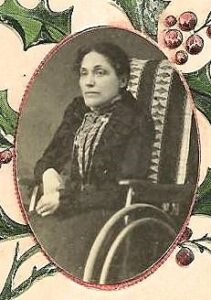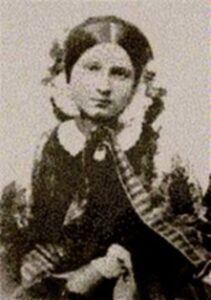Open My Eyes, That I May See
Open My Eyes, That I May See was written in 1895 by Clara Scott, a notable composer and hymnist, and the first woman to publish a collection of anthems. The song was written at the end of her life (she likely would have been an influential figure in American musical history, but she met an untimely demise due to a runaway horse and buggy accident). The hymn has fallen out of favor due to a musical style that was popular in its day, but has not aged well and sounds outdated. The lyrics, however, are timeless, and we set them to a different melody to give it a more modern vibe.
The text uses the senses to speak to a receptiveness for the spirit and insight from the divine – open eyes to see glimpses of truth, open ears to hear God’s message, an open mouth to love all of God’s children, and an open mind to grow in one’s understanding of God’s love. The imagery of open eyes occurs throughout scripture. Hymn scholar Dr. C. Michael Hawn writes:
“In some cases, this is a sign of Christ’s healing power, as when Jesus gave sight to the blind man at the pool of Siloam in John 9. Closed eyes, on the other hand, could be a metaphor for avoiding the truth as in the case of John 12:40, a passage following the triumphal entry of Christ into Jerusalem and beginning his journey to the cross: “He hath blinded their eyes, and hardened their heart; that they should not see with their eyes, nor understand with their heart, and be converted, and I should heal them.”
The image of open ears is also significant in the biblical witness. Matthew often reprises the theme “Who hath ears to hear, let him hear.” Closed ears become a metaphor for a lack of understanding: “For this people’s heart is waxed gross, and their ears are dull of hearing, and their eyes they have closed; lest at any time they should see with their eyes, and hear with their ears, and should understand with their heart, and should be converted, and I should heal them” (Matthew 13:15).
While the eyes and the ears are receptive organs, the mouth has the capacity to project. The mouth may project “cursing and deceit and fraud” (Psalm 10:7), or it may be an organ that projects praise, as Psalm 51:15 exhorts us: “O Lord, open thou my lips; and my mouth shall show forth thy praise.”
Open my eyes, that I may see glimpses of truth you have for me;
place in my hands the wonderful key that shall unlock and set me free.
Silently now I wait for Thee, ready, my God, Thy will to see.
Open my eyes, illumine me. Open my eyes, that I may see.
Open my ears, that I may hear voices of truth You send so clear;
and while the message sounds in my ear, everything false will disappear.
Silently now I wait for Thee, ready, my God, Thy will to see.
Open my ears, illumine me. Open my eyes, that I may see.
Open my mind, that I may read more of Your love in word and deed.
What shall I fear while yet You lead? Only for light, from You, I plead.
Silently now I wait for Thee, ready, my God, Thy will to see.
Open my mind, illumine me. Open my eyes, that I may see.
O Food to Pilgrims Given
O food to pilgrims given,
O bread of life from heaven,
O manna from on high!
We hunger; Lord, supply us,
nor thy delights deny us,
whose hearts to thee draw nigh.
Hold to God’s Unchanging Hand
 Jennie Wilson (1856-1913) was a prolific poet and hymn writer. A spinal condition caused her to become wheelchair bound at an early age. As a result, she couldn’t attend school and suffered from the alienation and persecution directed at those who were differently-abled in the 19th century. Since she studied, read, and wrote at home, she was able to exceed the level of both scholarship and career opportunities that would have been available to a woman in rural Indiana at the time. Her sadness and afflictions from her condition never made it into her poetry or hymns, and her writing conveys a sense of comfort and hope that can shine through persecution, despair, and suffering.
Jennie Wilson (1856-1913) was a prolific poet and hymn writer. A spinal condition caused her to become wheelchair bound at an early age. As a result, she couldn’t attend school and suffered from the alienation and persecution directed at those who were differently-abled in the 19th century. Since she studied, read, and wrote at home, she was able to exceed the level of both scholarship and career opportunities that would have been available to a woman in rural Indiana at the time. Her sadness and afflictions from her condition never made it into her poetry or hymns, and her writing conveys a sense of comfort and hope that can shine through persecution, despair, and suffering.
Time is filled with swift transition. Naught of earth unmoved can stand.
Build your hopes on things eternal. Hold to God’s unchanging hand.
Refrain:
Hold to his hand, God’s unchanging hand.
Hold to his hand, God’s unchanging hand.
Build your hopes on things eternal.
Hold to God’s unchanging hand.
Trust in him who will not leave you. Whatsoever years may bring.
If by earthly friends forsaken, still more closely to him cling. [Refrain]

